Astropolitics
Astropolitics (used interchangeably with Interstellar Geopolitics or just Geopolitics) examines how the interstellar geography of the Orion Arm influences nations and their interactions. It serves as a framework for analyzing foreign policy, using astrographical factors to interpret, explain, and anticipate political behavior on an interstellar scale. Heavily rooted in the concept of political power, this field of study provides a foundation for analyzing nations at the international level.
In the Cold War-dominated final years of the 23rd century, astropolitics is defined in near totality by the four-way struggle between the Orion Treaty Organization, Axis Powers, Comintern, and Co-Prosperity Sphere, with non-participant nations largely consolidated into the Non-Aligned Movement. These interstellar blocs are led by the United States, German Reich, Soviet Union, and Japan respectively, the four superpowers, and made up of lesser Great Powers, Regional Powers, Middle Powers, and Small Powers.
While nation-states remain the primary actors driving astropolitics, an increasing percentage of countries are now considered satellite states to varying degrees within the larger strategic competition. Proxy wars are widespread across the Orion Arm, rooted in local conflicts fueled and escalated by the interests of the superpowers or nations within their respective blocs. The increased interconnectivity across the Arm also enables actions taken by megacorporations, non-state entities, and sometimes even individuals to potentially shape astropolitics, igniting chains of events that can escalate far beyond their original scope.
As a consequence, the traditional state-centric order of the post-evacuation era is evolving. International organizations like the League of Nations, megacorporations, and non-state actors increasingly compete with nation-states for influence, a development often described as a form of new medievalism. Many megacorporations, and some non-state actors, command greater resources than middle or small powers, further blurring the lines that once clearly defined interstellar politics.
Superpowers
Superpower describes a sovereign state that holds a dominant position, characterized by the ability to exert influence and project power across the Orion Arm. They excel in every component of state power: demographic, economic, military, technological, political, and cultural strength, as well as diplomatic and soft power. Traditionally, superpowers are preeminent among the great powers. While other states are able to project power across the Orion Arm, the influence of the superpowers is so significant that no major action can be taken by the international community without first considering their positions.
| State Flag | Common and Formal Names | Membership Within the League of Nations | International Organization Membership | Legacy Nation | Further information on status and recognition of sovereignty |
|---|---|---|---|---|---|
 |
United States – United States of America | LoN Member State
Security Council Member |
Yes | ||
 |
Soviet Union – Union of Soviet Socialist Republics | LoN Member State
Security Council Member |
Yes |
| |
 |
German Reich – German Reich | LoN Member State
Security Council Member |
Yes | ||
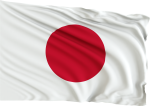 |
Japan – Empire of Japan | LoN Member State
Security Council Member |
|
Yes |
| Criteria For Inclusion: The methodology for classifying nations as superpowers, as outlined in this document, combines established criteria with the Champlain Group's proprietary analysis, incorporating both historical and contemporary qualifications. These include; extensive astropolitical influence, significant military capabilities with interstellar operational reach, a robust and diversified economy, and advanced technological prowess. Strong diplomatic and cultural influence is also considered. In recognition of the paramount role that interstellar territories play modern power dynamics, the number of undisputed territorial claims on star systems is also considered.
Note: Supranational Unions are not considered superpowers under this framework. See Also: Potential Superpowers |
Great Powers
| State Flag | Common and Formal Names | Membership Within the League of Nations | International Organization Membership | Legacy Nation | Further information on status and recognition of sovereignty |
|---|---|---|---|---|---|
 |
East Africa – East African Federation | LoN Member State
Security Council Member |
Yes | ||
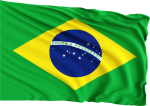 |
Brazil – Federative Republic of Brazil | LoN Member State
Security Council Member |
Yes | ||
 |
West Africa – Confederation of West African States | LoN Member State
Security Council Member |
Yes | ||
 |
France – French Republic | LoN Member State
Security Council Member |
Yes | ||
 |
Italy – Italian Social Republic | LoN Member State
Security Council Member |
Yes | ||
 |
China – Republic of China | LoN Member State
Security Council Member |
Yes | ||
 |
India – Republic of India | LoN Member State
Security Council Member |
Yes | ||
 |
Międzymorze – Międzymorze Commonwealth | LoN Member State | No |
| |
 |
Indonesia – Republic of Indonesia | LoN Member State
Security Council Member |
Yes | ||
 |
Pacific America - Pacific States of America | LoN Member State | Yes | ||
 |
Abyssinia – Imperial State of Ethiopia | LoN Member State
Security Council Member |
Yes | ||
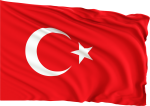 |
Türkiye – Republic of Türkiye | LoN Member State
Security Council Member |
Yes | ||
 |
Spain – Spanish State | LoN Member State
Security Council Member |
Yes | ||
 |
UAR – United Arab Republic | LoN Member State
Security Council Member |
Yes | ||
 |
Centauri – United Centauri Republic | LoN Member State | No | ||
 |
Great Britain – United Kingdom | LoN Member State
Security Council Member |
Yes |
Regional Powers
| State Flag | Common and Formal Names | Membership Within the League of Nations | International Organization Membership | Legacy Nation | Further information on status and recognition of sovereignty |
|---|---|---|---|---|---|
 |
Acadia – Federation of Acadia | LoN Member State | No | ||
 |
Argentina – Argentine Republic | LoN Member State |
|
Yes | |
 |
Australasia – Commonwealth of Australasia | LoN Member State | Yes | ||
 |
Aurelia – Federation of Aurelia | LoN Member State | No | ||
 |
Bulgaria-Romania – Union of Bulgaria and Romania | LoN Member State | Yes |
| |
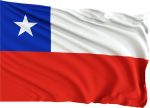 |
Chile – Republic of Chile | LoN Member State | Yes | ||
 |
Gran Colombia – Republic of Gran Colombia | LoN Member State | Yes | ||
 |
Cuba – People's Federation of Cuba | LoN Member State | Yes | ||
 |
Hungary – National Republic of Hungary | LoN Member State | Yes | ||
 |
Korea – Republic of Korea | LoN Member State | No | ||
 |
Manchuria – Empire of Great Manchuria | LoN Member State | Yes | ||
 |
Mexico – United Mexican States | LoN Member State | Yes | ||
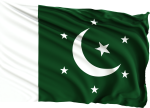 |
Pakistan – Islamic Federation of Pakistan | LoN Member State | Yes | ||
 |
The Philippines – Commonwealth of the Philippines | LoN Member State | Yes | ||
 |
Portugal – Portuguese National Federation | LoN Member State | Yes | ||
 |
Sirius – Sirius Federation | LoN Member State | No | ||
 |
Sweden – Kingdom of Sweden | LoN Member State | Yes | ||
 |
Tau Ceti – United Provinces of Tau Ceti | LoN Member State | No | ||
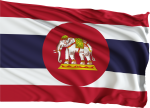 |
Thailand – Kingdom of Thailand | LoN Member State | Yes | ||
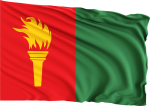 |
Republican Vega – Democratic Republic of Vega | LoN Member State | No | ||
 |
Federal Vega – Federal Union of Vega | LoN Member State | No | ||
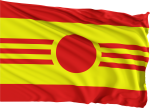 |
Vietnam – Empire of Vietnam | LoN Member State | Yes |
Middle Powers
| State Flag | Common and Formal Names | Membership Within the League of Nations | International Organization Membership | Legacy Nation | Further information on status and recognition of sovereignty |
|---|---|---|---|---|---|
 |
Appia – Appian Republic | LoN Member State | No | ||
 |
Andulela-Chelif – Republic of the Union of Andulela-Chelif | LoN Member State | No | ||
 |
Artemis – Artemis Colonial Republic | LoN Member State | No |
| |
 |
Arcturus – Union of Arcturan Republics | LoN Member State | No | ||
 |
Castine – National Republic of Castine | LoN Member State | No | ||
 |
Callisto – Callisto Colonial Republic | LoN Member State | No |
| |
 |
Finland – Republic of Finland | LoN Member State | Yes |
| |
 |
Ireland – Republic of Ireland | LoN Member State | Yes | ||
 |
Juno – United States of Juno | LoN Member State | No | ||
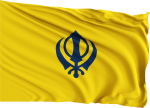 |
Khalistan – Federation of Khalistan | LoN Member State | Yes | ||
 |
Kitiya – People's Republic of Kitiya | LoN Member State | No | ||
 |
Mongibello – Independent State of Mongibello | LoN Member State | No | ||
 |
New Canaan – Republic of New Canaan | LoN Member State | No | ||
 |
Norway – Kingdom of Norway | LoN Member State | Yes | ||
 |
Quebec – Republic of Quebec | LoN Member State | No | ||
 |
Reunion – Reunion Colonial Republic | Non-Member | No | ||
 |
Senekane – Federation of Senekane | LoN Member State | No | ||
 |
Silvanus – Silvanus Colonial Republic | LoN Member State | No |
| |
 |
Tetus – Tetus People's Republic | LoN Member State | No |
| |
 |
Vesta – Republic of Vesta | LoN Member State | No | ||
 |
Virngrund – State of Virngrund | LoN Member State | No |
|
Small Powers
| State Flag | Common and Formal Names | Membership Within the League of Nations | International Organization Membership | Legacy Nation | Further information on status and recognition of sovereignty |
|---|---|---|---|---|---|
 |
Boreale – Colonial Republic of Boreale | LoN Member State | No | ||
 |
Callao – Bolivarian Republic of Callao | LoN Member State | No | ||
 |
Glasswall – Colonial Republic of Glasswall | No | |||
 |
Callwood – Republic of Callwood | No | |||
 |
Holy See | LoN Member State | Yes | ||
 |
Heinlein – Heinlein Colonial Republic | LoN Member State | No | ||
 |
Mdina – Mdina Colonial Republic | LoN Member State | No | ||
 |
Mediana – Mediana Colonial Republic | LoN Member State | No | ||
 |
Ash Point – Ash Point Colonial Administration | No | |||
 |
Messis – Independent State of Messis | LoN Member State | No | ||
 |
Petrarca – Petrarca Colonial Republic | LoN Member State | No | ||
 |
Grobnitsa – Independent Republic of Grobnitsa | LoN Member State | No | ||
 |
Kovach – Commonwealth of Kovach | LoN Member State | No | ||
 |
Sailastra – Commonwealth of Sailastra | LoN Member State | No | ||
 |
Val Verde – Colonial Republic of Val Verde | LoN Member State | No | ||
 |
Vorma-St. Monica – Colonial Union of Vorma-St. Monica | No | |||
 |
Vesper – Republic of Vesper | LoN Member State | No | ||
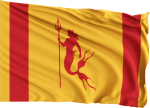 |
Salamis – Salamis Colonial Republic | LoN Member State | No | ||
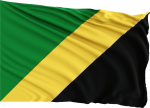 |
Kumasi – Kumasi Colonial Republic | LoN Member State | No | ||
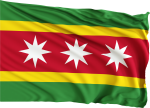 |
Banjuna-Mahara – Free State of Banjuna-Mahara | LoN Member State | No | ||
 |
Three Saints – Three Saints Colonial Administration | No | |||
 |
Arrowhead – Arrowhead Colonial Administration | No | |||
 |
Blakeburn – Blakeburn Colonial Union | No |